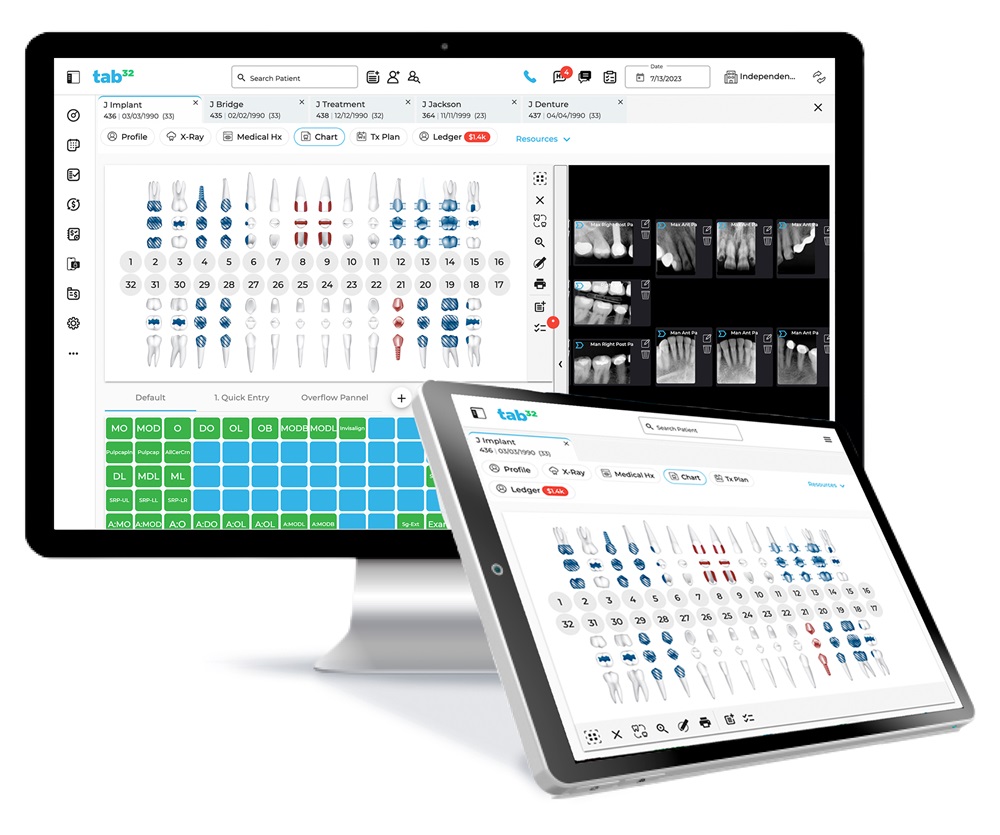Advanced Management Software
In the fast-paced world of healthcare, dental clinics are no exception to the demand for operational efficiency and streamlined management. Advanced management software has emerged as a game-changer, revolutionizing how dental practices operate.
Let’s explore the benefits and implementation strategies of leveraging cutting-edge software to transform dental clinics into well-oiled machines.
The Need for Operational Streamlining in Dental Clinics
Dental clinics face unique challenges in managing patient appointments, records, billing, and day-to-day operations. Manual processes, outdated systems, and paperwork can lead to inefficiencies and errors and hinder delivering high-quality patient care. The need for operational streamlining in dental clinics is evident, and advanced dental management software provides a comprehensive solution.
Benefits of Advanced Management Software
1. Appointment Scheduling and Patient Management:
Efficient appointment scheduling is crucial for dental clinics. Advanced management software allows clinics to streamline appointment bookings, manage patient records securely, and automate reminders. This results in reduced no-shows, improved patient flow, and enhanced overall patient experience.
2. Electronic Health Records (EHR) Integration:
The shift from paper-based records to electronic data has been a big step towards efficient working in dental clinics. Advanced software facilitates EHR integration, enabling dental professionals to access patient information securely, leading to quicker diagnoses, informed decision-making, and improved patient care.
3. Billing and Invoicing Automation:
Advanced management software automates billing and invoicing, ensuring accurate and timely transactions. This not only reduces administrative burden but also minimizes the risk of billing discrepancies.
4. Inventory Management:
Dental clinics need to manage supplies and equipment efficiently. Advanced software helps in tracking inventory levels, automating reordering processes, and minimizing wastage. This ensures that clinics are well-stocked with essential supplies while controlling costs.
5. Performance Analytics and Reporting:
Advanced management software provides valuable insights through analytics and reporting tools. Clinics can monitor key performance indicators, track patient satisfaction, and identify areas for improvement. This data-driven approach empowers clinics to make informed decisions and optimize their operations.
6. Communication and Collaboration:
Streamlined communication is essential for efficient teamwork within a dental clinic. Advanced software often includes internal communication, collaboration, and task management features, fostering a cohesive work environment and improving overall productivity.
Implementation Strategies for Dental Clinics
1. Assess Current Processes:
Before implementing advanced management software, clinics should conduct a thorough assessment of their existing processes. Identify pain points and areas for improvement. Understanding current workflows is crucial for tailoring the software to specific clinic needs.
2. Select the Right Software:
Choose a software that will align with the unique requirements of dental clinics. Look for features such as appointment scheduling, EHR integration, billing automation, and reporting tools. Consider scalability to accommodate future growth.
3. Staff Training:
Adequate training is essential for successful software adoption. Provide comprehensive training to clinic staff to ensure they are comfortable using the new system. This will minimize resistance to change and enhance overall productivity.
4. Data Security and Compliance:
Ensure that the selected software complies with healthcare data security regulations. One such software is tab32. Patient confidentiality is paramount in dental care, and adherence to privacy and compliance standards is non-negotiable.
5. Phased Implementation:
Implement the software in phases to minimize disruption to daily operations. Begin with core functionalities such as appointment scheduling and gradually introduce additional features. This approach allows staff to adapt gradually and ensures a smoother transition.
Conclusion
Transforming dental clinics with advanced management software is a strategic investment that pays off in improved efficiency, enhanced patient care, and streamlined operations. Dental practices can thrive in the ever-evolving healthcare landscape by addressing key challenges and adopting a data-driven approach. Embracing technological advancements is not just a step forward; it’s a leap toward a more efficient, patient-centric future for dental clinics.





Be First to Comment